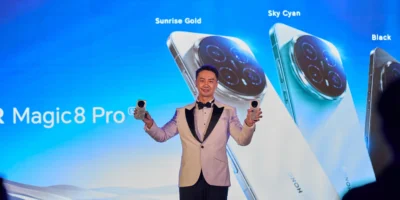Optimizing your YouTube videos for search engines is a crucial step to ensure that your content gets the attention it deserves. With over 2 billion monthly active users, YouTube is one of the largest search engines in the world. By optimizing your videos for SEO, you can increase your visibility and attract more viewers to your channel.
In this guide, we’ll take a look at the best practices to optimize YouTube videos for SEO using the focus keyword “optimize YouTube video for SEO”. Let’s dive in!
Keyword research
The first step in optimizing your YouTube videos for SEO is to conduct keyword research. This involves identifying the keywords and phrases that your target audience is using to search for content related to your video.

Start by brainstorming a list of potential keywords and phrases that are relevant to your video. You can use tools like Google Keyword Planner or Ahrefs to find related keywords and their search volumes. Look for keywords with high search volumes and low competition, as they will be easier to rank for.
Once you have identified your target keywords, incorporate them into your video title, description, tags, and video content. This will make it easier for search engines to understand the content of your video and rank it higher in search results.
Optimize your video title
The title of your video is one of the most important on-page SEO factors. It’s the first thing that viewers see when they come across your video on YouTube or search engines. Therefore, it’s important to make sure your title is engaging, descriptive, and includes your target keyword.
Include your target keyword at the beginning of your video title, as this will make it more prominent in search results. Avoid using clickbait or misleading titles, as this can lead to higher bounce rates and lower rankings.
Craft a compelling video description
The video description is another crucial component of optimizing your YouTube videos for SEO. It provides an overview of your video’s content and helps search engines understand what your video is about.
Include your target keyword in the first paragraph of your video description, as this will make it more visible to search engines. Use the description to provide a summary of your video’s content and include any relevant links or resources.
Make sure your description is clear, concise, and engaging. Use bullet points or subheadings to break up the text and make it easier to read.

Use relevant tags
Tags are a way to categorize your video and make it easier for viewers to find related content. They also help search engines understand the content of your video and rank it higher in search results.
Use relevant tags that reflect the content of your video. Include your target keyword and related keywords to help search engines understand the topic of your video. Use a mix of broad and specific tags to maximize your visibility.
Add closed captions
Closed captions are a great way to improve the accessibility of your video and make it easier for viewers to follow along. They also provide an additional opportunity to include your target keywords.
Include closed captions in your video using YouTube’s built-in captioning tool or by uploading a caption file. Make sure your captions are accurate, clear, and timed correctly.

Promote your video
Promoting your video is an important part of optimizing it for SEO. Share your video on social media, embed it on your website, and encourage your followers to like, comment, and subscribe.
Promoting your video can help increase its visibility, attract more viewers, and improve your engagement metrics. This, in turn, can help improve your video’s rankings in search results.
Conclusion
In conclusion, optimizing your YouTube videos for SEO can help improve their visibility, attract more viewers, and increase engagement. Use relevant keywords in your video title, description, tags, and content. Make sure your video is engaging, informative, and provides value to your audience. Promote your video on various platforms to increase its reach and engagement.
Remember to use closed captions to make your video accessible and provide an additional opportunity to use your target keywords. Regularly monitoring your video’s performance and making adjustments as needed can also help improve its rankings in search results. By following these best practices for optimizing your YouTube videos for SEO, you can increase your chances of success on the platform and grow your channel over time.
Frequently Asked Questions
What is the first step in optimizing a YouTube video for SEO?
The first step is to conduct keyword research and identify relevant keywords and phrases to target.
Why is the video title important for SEO?
The video title is one of the most important on-page SEO factors and helps search engines understand the content of your video.
Should you use clickbait titles for your YouTube videos?
No, clickbait titles should be avoided as they can lead to higher bounce rates and lower rankings.
How can you optimize your video description for SEO?
Include your target keyword in the first paragraph, provide a summary of your video’s content, and use bullet points or subheadings to make it easier to read.
What are YouTube tags and why are they important for SEO?
Tags are a way to categorize your video and make it easier for viewers to find related content. They also help search engines understand the content of your video and rank it higher in search results.
How can closed captions help with video SEO?
Closed captions improve the accessibility of your video and provide an additional opportunity to include your target keywords.
What are some ways to promote your YouTube video?
Share it on social media, embed it on your website, and encourage viewers to like, comment, and subscribe.
Can promoting your YouTube video improve its rankings in search results?
Yes, promoting your video can increase its visibility, attract more viewers, and improve your engagement metrics, which can in turn improve its rankings.
Is it necessary to use all of your target keywords in your video content?
No, it’s important to use your target keywords naturally and not overuse them, as this can be seen as spammy by search engines.
Can optimizing your YouTube videos for SEO help grow your channel?
Yes, optimizing your videos for SEO can increase your visibility, attract more viewers, and improve engagement metrics, which can ultimately help grow your channel.











